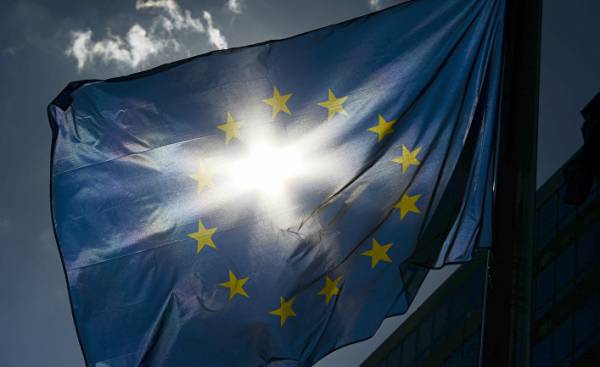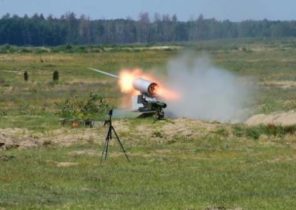
“Tell me what you’re afraid of, and I’ll tell you what’s gonna happen,” wrote D. V. psychologist, Psychotherapist (D. W. Winnicott) in the early twentieth century. Sounds simple until you think about how much happens and how much of what should be.
The variety of threats the world faces today makes one think about the tragic farce of Luigi Pirandello (Luigi Pirandello). Many in the West pay attention to religious extremism, particularly the terrorist acts committed in the name of Islam.
Others again refer to Russia and talking about a new cold war, which is clearly visible in Eastern Europe and the virtual space. Yet others emphasize the growth of aggressive right-wing populism in the United States and some parts of Europe and declare that the true danger lies within.
And even those who recognize all of these threats, it is difficult to allocate priorities and the inevitable action to confront the danger. If, for example, as the main threats to elect Islamic terrorism, then it is reasonable for the West to deal with it has agreed with Russia.
What is a priority for us?
But what if right-wing populism, which has actively supported the Kremlin, posed the greatest danger? In this case the agreement with Russia will be disastrous for liberal democracy of the West.
Of course, if you exaggerate the danger of Islamic terrorism and at the same time underestimate the danger of right-wing populism, it will be on hand to Russian President Vladimir Putin.
The struggle for the distribution of threats according to their priority is not limited to the West. And in the middle East countries are trying to determine who should be held. The list is headed by the Islamic state (banned in Russia), Iran and Israel.
For Israel (and Saudi Arabia) the biggest threat without a doubt is Iran. Iran is Israel (regardless of great tension in the relations with Saudi Arabia). And the West also has an opinion in this matter. The European Union is convinced that ISIS should be a top priority.
What are they afraid of Asians
A few months ago, the United States, perhaps, would have agreed with the EU, but the President of Donald trump (Donald Trump) could also be ready to contain Iran on the side of Israel, although he has made the eradication of ISIS as a most important political goal.
In Asia, the distribution of existing threats is also preparing the local countries headache. Do I need to focus on the North Korean regime, which constantly shows itself unstable and recently launched in the sea of a ballistic missile from its Eastern coast?
Or should we follow China, which is step by step expanding its regional influence and its revanchist ambitions?
For Japan and South Korea, North Korea seems to be the biggest priority. But for Vietnam, Indonesia and Singapore it’s hard to imagine that North Korea is indeed a greater danger than the vast and increasingly nationalist China, not to mention other big threats, such as tense relations between the two regional nuclear powers Pakistan and India.
The revolution and the civil war
The priority of today’s threats is no simple answer. But if we don’t find the answer, for us, there is a danger of repeating some of the biggest mistakes of history.
French philosopher Paul valéry (Paul Valéry) believed that history actually teaches us anything, because “it has everything and it gives examples of everything.” But at the moment it is difficult Europe in the first place — to avoid historical comparisons. In the late 19th century, growing nationalism created the Foundation for the era of revolutions and civil wars.
In the thirties the rise of populism Europe paved the way to disaster. Fear of “red” many Europeans were willing to make an Alliance with “brown”. This continued until, until soon there was a real threat of Nazism.
The lesson is quite clear. Instead of trying to give appropriate priority to the threat that we face, that is, to compromise with respect to the goals to select another goal, we try to deal with all threats at once.
Killed Israeli Prime Minister Yitzhak Rabin (Jizchak Rabin) used to say that we should “fight terrorism as if there is no peace process, and to seek peace like terrorism does not exist.”
The fight against Islamic terrorism is important, but the principle of protecting our democracy from the danger of right-wing populism should not be pushed into the background, not to mention the fact to be violated.
If, for example, to take the victory of marine Le Pen (Marine Le Pen), head of the National front in the presidential election of France, arguing that it is at least better than further spread of radical Islam, it means that ignored the lessons of history and reality.
Europe. Model of fear
ISIS may, like Nazism arise from the culture of humiliation. Its engine is the spirit of revenge, but it did not have the industrial and military resources that were in Germany in the thirties. ISIS is not a “modern Nazi”, whom we should fear, rather it is the terrorism that we must fight in the spirit of Yitzhak Rabin.
Meanwhile, the world to which we must strive is in our countries. To make possible the further spread of right-wing populism means to succumb to fear, instead of accordingly to hold a sober analysis of our interests and, above all, our values. This means out of fear of the red to join the Union brown shirts.
More recently the EU as a model of reconciliation, peace and prosperity, inspired the countries stretching from Latin America to Asia. Today Europe, together with the once admired United States is a model of fear and scares others.
If the Europeans will not be able to clearly, and definitely interested to find clear solutions for the threats that they face, then who will do it?






